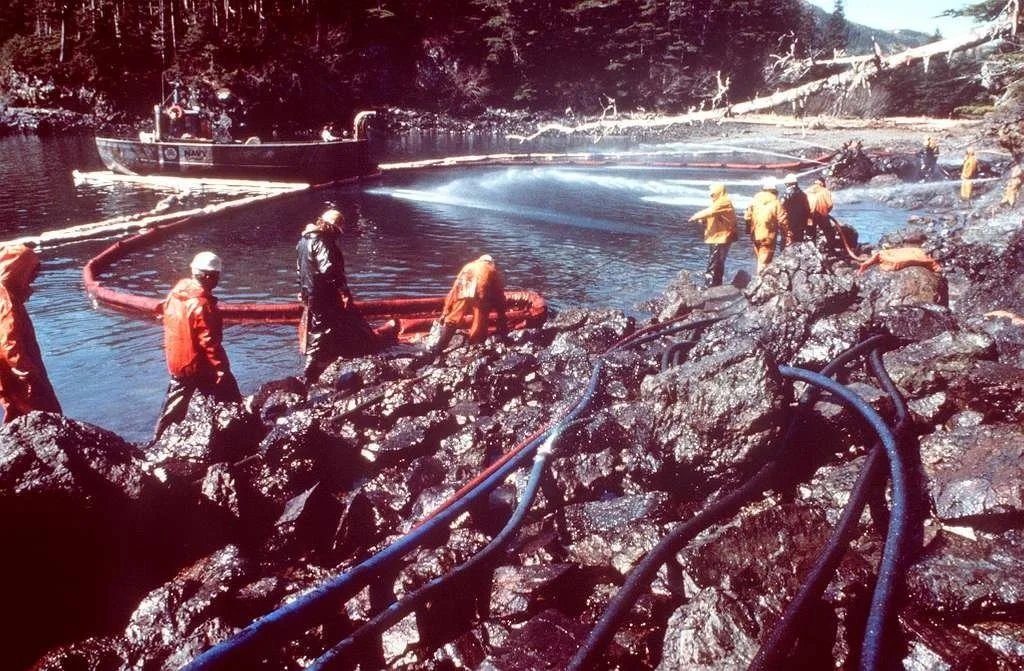From Stewardship to Strategy: The Twisting History of Sustainability
The following excerpt is taken from an upcoming guide on the current state of sustainability reporting. To stay updated, please sign up here.
Image Source: René Riegal| Aboriginal petroglyphs created by Austrialia’s First Nations.
The principles that underlie our modern understanding of sustainability— I use “our” broadly here as there are vast differences in regional understandings of the term— date back centuries.
For pretty much all of human history, sustainability wasn’t a corporate concept—it was a way of life. Entire civilizations depended on their ability to manage resources wisely. Societies embedded environmental and social responsibility into their belief systems, framing it as a moral, spiritual, or even existential duty.
The Iroquois made decisions based on their impact seven generations into the future. Islamic finance forbade exploitative practices that could destabilize communities. Shintoism in Japan fostered an innate respect for nature. Across Africa, sustainability was a way of life, rooted in communal stewardship, ecological wisdom, and intergenerational responsibility. Aboriginal petroglyphs in Australia, as seen above, also reflect deep connections to land and nature, serving as records of sustainable practices and spiritual reverence for the environment
The Disruption: Imperialism, Colonialism, and Capitalism
Then the three horsemen of industrialization hit:
Imperialism, Colonialism, and Capitalism.
Image Source: The British Museum| A late-16th century Flemish engraving showing the manufacture of sugar loaves on a colonial plantation
As European empires expanded, old ways of thinking about land, labor, and responsibility unraveled. Sustainability was no longer a matter of shared stewardship; it became a question of ownership and profit. Land was something to be extracted from, workers were costs to be minimized (i.e. enslaving people), and business had only one real objective: growth. If a river became polluted, a city’s air turned black, or workers died in unsafe conditions, it wasn’t the company’s problem.
It was the cost of progress.
The Early Pushback: Ethical Movements and Resistance
And yet, the pushback began almost immediately. Some of the first business ethics movements weren’t driven by governments but by religious groups, abolitionists, and communities rejecting profits built on exploitation.
The Quakers refused to invest in the slave trade.
The Swadeshi movement in India pushed back against industrial imports, calling for self-sufficiency and ethical production.
The Māori in New Zealand fought for land rights against European settlers, not just to preserve their way of life but to maintain the delicate balance between people and the environment.
Resistance wasn’t always framed in modern sustainability language, but the underlying argument was the same: industry had to be held accountable.
The Long Road to Corporate Responsibility
That accountability, however, would take centuries to materialize. Throughout the 19th and early 20th centuries, the only real checks on corporate power came from revolts, revolutions, and mass uprisings. Enslaved peoples rose up against their oppressors. Communities fought land seizures. The threat of worker rebellion—not corporate goodwill—forced early labor protections and pollution controls. But by the mid-20th century, something unexpected happened: businesses started voluntarily taking responsibility. Or at least, they started saying they did.
This was the birth of corporate social responsibility (CSR). Some of it was genuine—companies like Tata in India embedded social welfare into their business models. Some of it was strategic philanthropy, as seen with Andrew Carnegie’s libraries or Rockefeller’s foundations. And some of it was purely cosmetic. In 1970, economist Milton Friedman famously argued that the only social responsibility a corporation had was to increase profits. If businesses wanted to donate to charity or invest in worker well-being, that was fine—but only if it served shareholders. The era of corporate responsibility had begun, but it was built on a shaky foundation: goodwill was only sustainable as long as it was also profitable.
Image Source: U.S. Coast Guard|Exon Valdez Oil Spill Cleanup by the U.S. Coast Guard
The Environmental Awakening: The 1970s and Beyond
Over the course of the 1970s, however, everything changed. The world was no longer just debating business ethics; it was confronting an environmental crisis. Scientists had been warning about pollution and resource depletion for decades, but it took a series of high-profile disasters—the Exxon Valdez oil spill, the Love Canal toxic waste scandal, the ozone hole—for governments to take action. The US created the Environmental Protection Agency. Europe passed pollution controls. Japan, already accustomed to long-term thinking, integrated environmental responsibility into corporate culture.
Source: Politico | The Irish airline Ryanair DAC was accused of misleading consumers about its greenhouse gases
The Reality Check: Greenwashing and the Global Divide
At first glance, it looked like a revolution. In reality, most of these reports portrayed firms in a positive light, rarely highlighting negative aspects and seldom focusing on metrics that measured the efficiency of their resource use. The numbers told a story of corporate progress, but they left out the inconvenient details—the failures, the ongoing environmental destruction, and the fact that for many companies, sustainability was more about branding than real accountability.
And while sustainability reporting became widespread in the US and Europe, it remained a lower priority in much of the Global South. Not because Global South countries weren’t engaged in sustainability (as seen in the successes of Costa Rica and Kenya), but because the legacies of colonialism and capitalist extraction have left deep scars (in places like the Congo and Nigeria), where continued resource exploitation by foreign industries and development challenges still hinders social and environmental stability.
The 2020s: From Greenwashing to Greenhushing
By the 2020s, reporting for many businesses was no longer optional. Governments made it mandatory, investors used ESG scores to assess risk, and sustainability metrics became as important as financial statements. Yet, amidst this shift, something strange happened. Instead of embracing transparency, many companies began to retreat into silence.
The COVID crisis, social riots, wars, and political turmoil—including the rise of right-wing movements—created a volatile backdrop. In the US and parts of Europe, right-wing governments rolled back social rights while rejecting climate policies, claiming they were detrimental to business. Similarly, in Brazil, the Bolsonaro administration weakened environmental protections, undermining efforts to combat deforestation in the Amazon. In this charged environment, companies that once proudly showcased their green initiatives began fearing backlash. The shift from ‘greenwashing’ to ‘greenhushing’ began—still engaging in sustainability work, but doing so quietly.
The Cycle Continues
And so, the cycle continues. Industry pushes the limits, society pushes back, regulations follow, businesses adapt—sometimes sincerely, sometimes strategically. Sustainability reporting, like every form of corporate accountability before it, isn’t a sign that businesses have finally seen the light.
It’s a response to pressure.
This doesn’t necessarily make a company ethically or morally 'good' or 'bad.' It’s a reflection of their efforts to align with societal expectations or legal requirements. And history suggests that when that pressure fades, so does corporate responsibility.
Sources:
Clarkson, Linda, et al. Our Responsibility to the Seventh Generation. International Institute for Sustainable Development, 1992, https://wgbis.ces.iisc.ac.in/biodiversity/sdev/seventh_gen.pdf.
Zuhdi, Ahmad, et al. "Islamic Philosophy's Approach to Environmental Ethics: An Analysis of the Teachings of the Qur'an and Hadith." Journal of Noesantara Islamic Studies, vol. 1, no. 4, 15 Oct. 2024, pp. 180-93, https://doi.org/10.70177/jnis.v1i4.1392.
Rots, Aike P. Shinto, Nature and Ideology in Contemporary Japan: Making Sacred Forests. Bloomsbury Publishing, 2024.
Kelbessa, Workineh. "Environmental Philosophy in African Traditions of Thought." Environmental Ethics, vol. 40, no. 4, 2018, pp. 309.
"The History of Faith-Based Investing." Dana Investment, 4 Feb. 2025, https://insights.danainvestment.com/blog/the-history-of-faith-based-investing.
Patel, Dinyar. "To Revive India's Industries: The Global and Imperial Roots of Swadeshi in the Nineteenth Century." Modern Asian Studies, vol. 58, no. 3, May 2024, pp. 686-716, https://doi.org/10.1017/S0026749X24000350.
Sorrenson, M. P. K. "Colonial Rule and Local Response: Maori Responses to European Domination in New Zealand since 1860." The Journal of Imperial and Commonwealth History, 1 Jan. 1976, https://doi.org/10.1080/03086537608582453.
Aithal, P. S. "Achieving Business Excellence through Ethical Business Model: A Success Story of Tata Group, India." Poornaprajna International Journal of Management, Education & Social Science (PIJMESS), vol. 1, no. 2, 30 Nov. 2024, pp. 165-98.
Frumkin, Peter. Strategic Giving: The Art and Science of Philanthropy. University of Chicago Press, 2008.
Friedman, Milton. "A Friedman Doctrine-- The Social Responsibility of Business Is to Increase Its Profits." The New York Times, 13 Sept. 1970, sec. Archives, https://www.nytimes.com/1970/09/13/archives/a-friedman-doctrine-the-social-responsibility-of-business-is-to.html.
"Exxon Valdez | Oil Spills | Damage Assessment, Remediation, and Restoration Program." NOAA, 7 Feb. 2025, https://darrp.noaa.gov/oil-spills/exxon-valdez.
Beck, Eckardt C. "The Love Canal Tragedy." EPA, 1979, https://www.epa.gov/archive/epa/aboutepa/love-canal-tragedy.html.
"Ozone Hole Through the Years 1970 - 2011." NASA, 1970, https://eospso.gsfc.nasa.gov/sites/default/files/publications/20120zone_Hole_Lenticular_508_Compliant.pdf.
"GRI - Mission & History." Global Reporting Initiative, 7 Feb. 2025, https://www.globalreporting.org/about-gri/mission-history/.
"Republic of Costa Rica." The Earthshot Prize, 7 Feb. 2025, https://earthshotprize.org/winners-finalists/costa-rica/.
"Africa Sustainable Futures Awards Winners." MIGA, Oct. 2024, https://www.miga.org/press-release/africa-sustainable-futures-awards-winners-announced.
Gross, Terry. "'Cobalt Red' Describes the 'Horror Show of Mining the Element in the DRC: Goats and Soda: NPR." NPR: Fresh Air, 7 Feb. 2025, https://www.npr.org/sections/goatsandsoda/2023/02/01/1152893248/red-cobalt-congo-drc-mining-siddharth-kara.
Adebayo, Taiwo. "In Nigeria's Lithium Boom, Many Mines Are Illegal and Children Do Much of the Work." AP News, 12 Dec. 2024, https://apnews.com/article/lithium-mining-energy-transition-child-labor-nigeria-africa-22155590dddf7ecc0b9fd55b221.
"Letter on the Amazon and Its Defenders to the Organisation for Economic Cooperation and Development (OECD)." Human Rights Watch, 6 Feb. 2021, https://www.hrw.org/news/2021/02/06/letter-amazon-and-its-defenders-organisation-economic-cooperation-and-development.
"Poland: Rule of Law Erosion Harms Women, LGBT People." Human Rights Watch, 15 Dec. 2022, https://www.hrw.org/news/2022/12/15/poland-rule-law-erosion-harms-women-lgbt-people.
Fisher, Rob, et al. "Greenwashing, Greenhushing and Greenwishing." KPMG, 2024.



